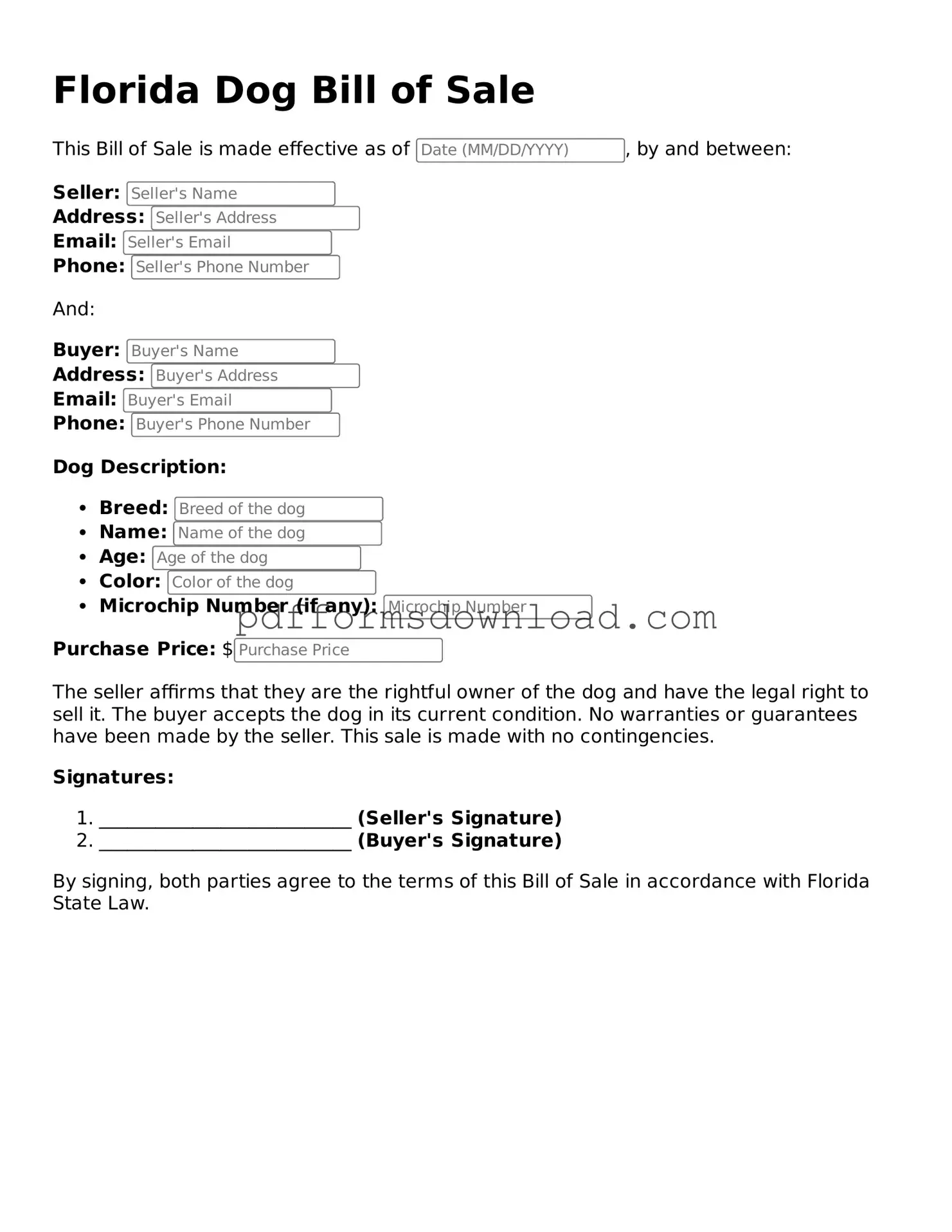Printable Florida Dog Bill of Sale Form
The Florida Dog Bill of Sale form is a legal document used to transfer ownership of a dog from one party to another in the state of Florida. This form serves as proof of the transaction and outlines essential details about the dog, including its breed, age, and any health guarantees. To ensure a smooth transfer, consider filling out the form by clicking the button below.
Make This Document Now

Printable Florida Dog Bill of Sale Form
Make This Document Now

Make This Document Now
or
Free PDF File
Your form is almost ready
Complete your Dog Bill of Sale online — edit, save, and download easily.